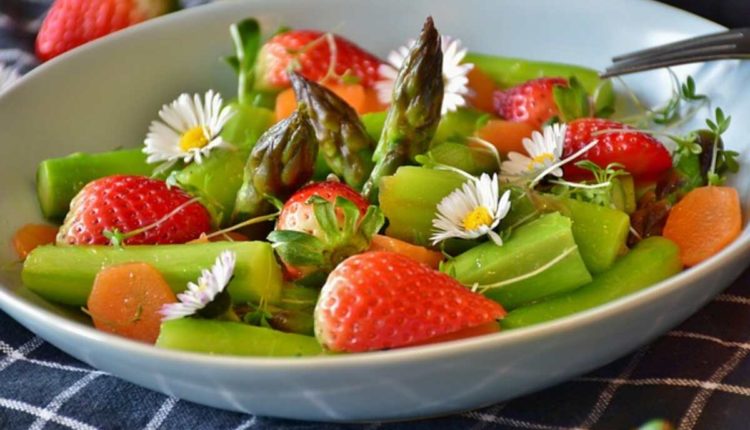The Mediterranean diet features lean proteins such as fish and shellfish with low mercury levels, such as cod, haddock, and hake. Check out the Best info about Mediterranean diet meal plan.
Beans are an integral part of the Mediterranean diet and an excellent fiber, potassium, and magnesium source. Enjoy them fresh, dried, or canned for optimal nutrition!
Diets that promote weight loss tend to exclude highly processed dessert foods while encouraging moderate wine intake; five ounces for women and two glasses of wine is ideal.
Seafood
Fish is an integral component of the Mediterranean diet, and cold-water fish such as salmon and tuna contain omega-3 essential fatty acids that promote cardiovascular well-being. Pair grilled salmon with a nutritious salad for lunch, or make citrus-poached cod served over quinoa and kale for an enjoyable dish!
Shellfish such as shrimp, clams, and mussels provide a healthy source of omega-3s that are perfect for adding to salads or serving over whole grains for dinner. Be mindful to choose lean proteins from fish, poultry, eggs, and beans over higher-fat options like fast food.
Beans are an integral component of the Mediterranean diet, providing a source of fiber-rich meals and essential vitamins and minerals such as potassium, magnesium, and iron. Keep canned or dried beans in your pantry, pair them with side vegetables, or create delicious soup dishes!
The Mediterranean diet emphasizes whole, healthful foods over highly processed items. Replace refined grains such as white bread and pasta with complete grain options like quinoa, barley, or brown rice for more nutritional content, and reduce added sugars by using natural sweeteners like fruit to satisfy any sweet cravings.
Vegetables
For optimal nutrition, the Mediterranean diet emphasizes fruits and vegetables, incredibly dark leafy greens, and berries. These low-cal foods offer essential vitamins, minerals, fiber, and antioxidants – ensure your intake includes fresh, frozen, canned, or seasonal produce to reap maximum rewards!
Make an effort to consume three to four servings of vegetables daily, prioritizing non-starchy varieties like spinach, bell peppers, and broccoli. Also, strive for three to four servings of legumes, such as lentils and beans, each week, as these essential plants provide protein, fiber, and essential nutrients like potassium, magnesium, and iron.
Add leafy greens to salads, grain bowls, and stir-fries to boost vitamins A, K, C, folate, and lutein. Berries offer another tasty source of nutrients – fresh or frozen can both ensure maximum nutrient absorption!
Lean Meats
The Mediterranean diet features lean animal proteins like fish, poultry, eggs, and nuts – these protein sources offer high concentrations of inflammation-fighting omega-3 fatty acids, fiber, and heart-healthy fats – to keep you feeling satisfied and full for longer.
Diets incorporating legumes such as beans can also add fiber-rich, vitamin-rich nutrients like potassium, magnesium, and iron for better overall nutrition and to help reduce saturated fat intake while adding texture to meals.
Increase the plant-based component of your meals with some beans each week by including them in soups, salads, and pasta dishes for a satisfying protein boost.
Healthy Mediterranean-style meals can be found through various online meal delivery services. Sunbasket provides numerous diet plans incorporating Mediterranean cuisine with other popular eating styles; others, like ModifyHealth, can customize one specifically tailored to meet your goals and needs. Meal kits or fully prepared meals from these services may also be gluten-free, vegetarian, or vegan-friendly!
Whole Grains
The Mediterranean diet emphasizes eating whole, unprocessed foods while restricting processed, sugary treats. Dairy products such as Greek yogurt and cheese should only be consumed in low to moderate quantities; wine consumption may be permitted, and healthy fats such as olive oil incorporated into daily consumption of olive oil products, nuts, beans, and fish also make up part of this eating plan.
Research suggests that opting for whole grains over refined ones is critical to lowering the risk of diabetes by slowing blood sugar spikes, according to studies. Some excellent choices include quinoa, barley, bulgur, and brown rice.
Fruit is an integral component of the Mediterranean diet, with berries being particularly recommended due to their rich supply of antioxidants, fiber, vitamins, and minerals. Leafy greens like arugula and spinach also play a prominent role in Mediterranean meals.
The Mediterranean diet may appear daunting due to its strict guidelines and limited access to certain ingredients such as seafood and high-quality olive oil, but making changes that adhere to this lifestyle doesn’t have to be challenging. Add more seafood, fruits, vegetables, lean meats, and whole grains to your diet.
Fruits
Fruit and veggie-rich diets contain antioxidants that reduce the risk of obesity, heart disease, diabetes, dementia, depression, and cancer. Studies indicate these nutrients could reduce your risk.
Fresh berries (a staple food of the Mediterranean diet) and other colorful fruits offer essential fiber, vitamins, and minerals while supporting gut health by feeding beneficial bacteria that aid in digesting and absorbing nutrients.
Opting for naturally sweet foods such as fruit can satisfy cravings without the extra calories or chemicals in processed desserts and prepackaged snacks that often include added sugars, salts, fats, chemicals, or artificial flavors.
Other nutritious meals you should add include beans, nuts, and whole grains. These pantry staples provide protein, fiber, and essential nutrients like iron, folic acid, magnesium, zinc, and B vitamins – helping maintain a healthy weight by decreasing heart disease risk factors like high blood pressure. Extra-virgin olive oil should serve as your primary source of unsaturated fats.
Read Also: Is Poppy Seed Good For Kidney?


